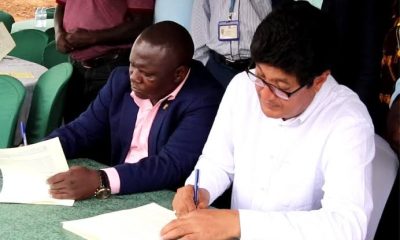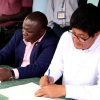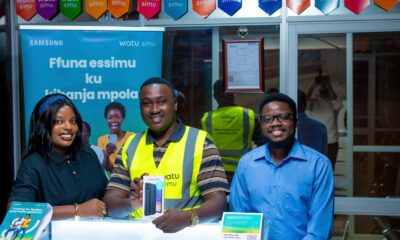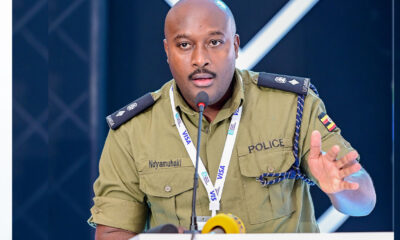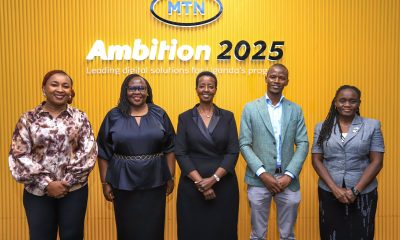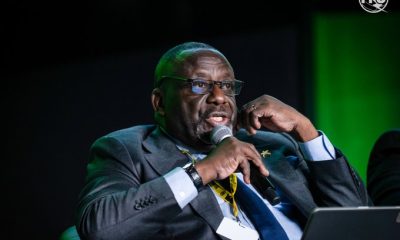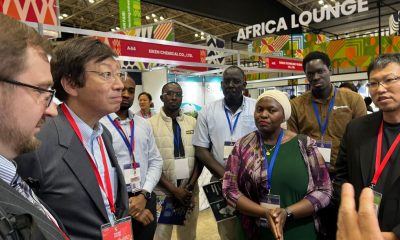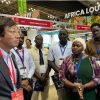Tech and Communication
African Talent Company and Mastercard Foundation Expand Youth Employability Drive to East Africa
The African Talent Company (TATC), in collaboration with the Mastercard Foundation, is extending its acclaimed youth employability initiative from Nigeria into East Africa, marking a significant milestone in the journey to equip young Africans with the skills and opportunities needed for the modern job market.
The move builds on the success of the five-year partnership through Jobberman Nigeria, which has since 2020 trained over 2.4 million young Nigerians and enabled more than 600,000 job placements under the Mastercard Foundation’s Young Africa Works strategy. This initiative focuses on creating inclusive and dignified work opportunities for youth aged 18 to 35, using a combination of community engagement, data-driven approaches, and low-bandwidth digital solutions to maximize accessibility.
As part of the expansion, TATC is rolling out similar youth-focused employment strategies through its East African platforms; BrighterMonday Kenya and BrighterMonday Uganda.
BrighterMonday Kenya recently hosted its first Career Clinic in Kakuma, in partnership with the Amahoro Coalition. The event welcomed over 200 displaced youth and community stakeholders, focusing on job readiness through mentorship, skills training, and networking under the theme: Future Ready: Equipping Talent for Inclusive Digital Job Markets.
In Uganda, a similar Career Clinic in Kampala brought together key players from both government and the private sector. The event, themed Skills For Today: Empowering Uganda’s Youth To Take Control Of Their Future, provided young job seekers with CV reviews, one-on-one coaching, and digital skills workshops, reinforcing TATC’s commitment to hands-on, practical employment preparation.
Tech as a Tool for Inclusion
This regional momentum follows Jobberman Nigeria’s Technology and Employment Inclusion in Marginalised Contexts (TEIMC) Roundtable, recently held in Abuja. The discussion spotlighted the need for inclusion of vulnerable groups such as women in disadvantaged communities, persons with disabilities (PWDs), and internally displaced persons (IDPs) in employment conversations.
“Technology can and must be a force for inclusion, not division. As the world of work evolves, we must ensure that no one is left behind,” said Hilda Kabushenga, CEO of The African Talent Company.
The TEIMC roundtable also saw the launch of a report revealing that 72% of Nigerian employers make no effort toward inclusive hiring. However, there is hope. The findings show that digital tools and remote work are opening new opportunities: 55% of PWDs and 44% of displaced women surveyed had found some form of employment, mainly through self-employment in creative media and agriculture.
“Inclusion is not a side conversation, it is the main agenda. We must design systems where marginalised groups are not just considered, but centered,” said Rosy Fynn, Country Director for Mastercard Foundation Nigeria
Axel Konjack, Head of Global Marketplaces and Executive Board Member at Ringier Group, emphasized Africa’s workforce potential: “Africa is home to the world’s youngest and fastest-growing workforce, and that presents both an incredible opportunity and a responsibility.”
He stressed the importance of investing in skills, access, and tools that allow young Africans to thrive in an increasingly digital global economy.
With proven impact in Nigeria, TATC and Mastercard Foundation’s move into East Africa represents a scaling up of a proven model. It also signals a broader commitment to building equitable employment systems that address the unique challenges facing Africa’s most vulnerable youth populations.
“The partnership in Nigeria has laid a strong foundation. But the real work has just begun,” Kabushenga concluded
Comments




